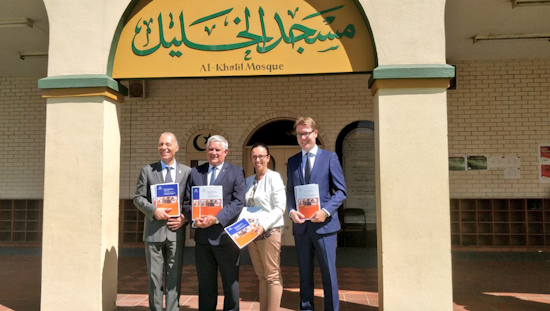Equal aged care access for multicultural communities
Culturally and Linguistically Diverse (CALD) Australians will receive support in overcoming barriers they may face in accessing aged care services following the launch of the Government’s Aged Care Diversity Action Plan.

The CALD Action Plan is one of four distinct action plans developed under the Government’s Aged Care Diversity Framework. (Source: FECCA)
Aged Care Minister Ken Wyatt says staying connected to our culture and being cared for by someone who understands our background can make all the difference to a happier, healthier and more fulfilling life.
“Australia’s diversity is one of our greatest strengths and as our population ages our Government is determined to ensure equal access to high-quality, culturally comfortable aged care for people of multicultural heritage,” he says.
“It may be a lack of awareness and knowledge of services available, concerns over the complexity of the aged care system, language barriers or lack of CALD appropriate aged care providers that prevent senior people from easily accessing the right aged care services.”
Speaking at the launch in Adelaide, ACH Group Chief Executive Officer (CEO) Frank Weits says the organisation has been supporting older South Australians from culturally and spiritually diverse communities for over 65 years.
“At ACH Group, we celebrate diversity and acknowledge and respect cultural backgrounds, religious and spiritual beliefs and practices,” Mr Weits says,
Mr Weits says ACH Group has enjoyed a successful relationship with the Muslim community for the past five years, which has seen the organisation assist in “respectful and meaningful interactions” with older members of that community.
“This partnership is part of our commitment to ensure access to high quality, culturally appropriate aged care for people from culturally and linguistically diverse backgrounds,” Mr Weits says.
In 2016, there were 3.7 million Australians aged 65 years and over. Of this number, one-third were born in a non-English speaking country.
Minister Wyatt says the new Action Plan will help guide aged care recipients and their families, while assisting providers to ensure their services are inclusive and culturally safe for all consumers in their care.
“The plan links to resources to help senior CALD people and families express their needs when communicating with aged care providers,” he says.
“In addition, people working in aged care—doctors, nurses, support staff and allied health workers—will find it valuable to understand the perspectives of CALD people.”
To help form the Action Plan, The Federation of Ethnic Communities’ Councils of Australia (FECCA) held extensive consultations Australia wide, consulting around 700 older people from CALD backgrounds, their families, advocates and representatives, carers, aged care providers, health professionals and other peak agencies.
FECCA Chairperson Mary Patetsos, who also attended the launch, says the Action Plan is a big milestone which will lead to great outcomes.
“Those consultations identified a range of barriers these communities face in accessing aged care services, which include language barriers, cultural barriers, and issues with accessing technology,” Ms Patetsos says.
“Every Australian has the right to quality healthcare, and the Aged Care Diversity Action Plan for CALD Australians provides a framework whereby we can work towards delivering equal access to these services for all Australians.”
The CALD Action Plan is one of four distinct action plans developed under the Aged Care Diversity Framework.























